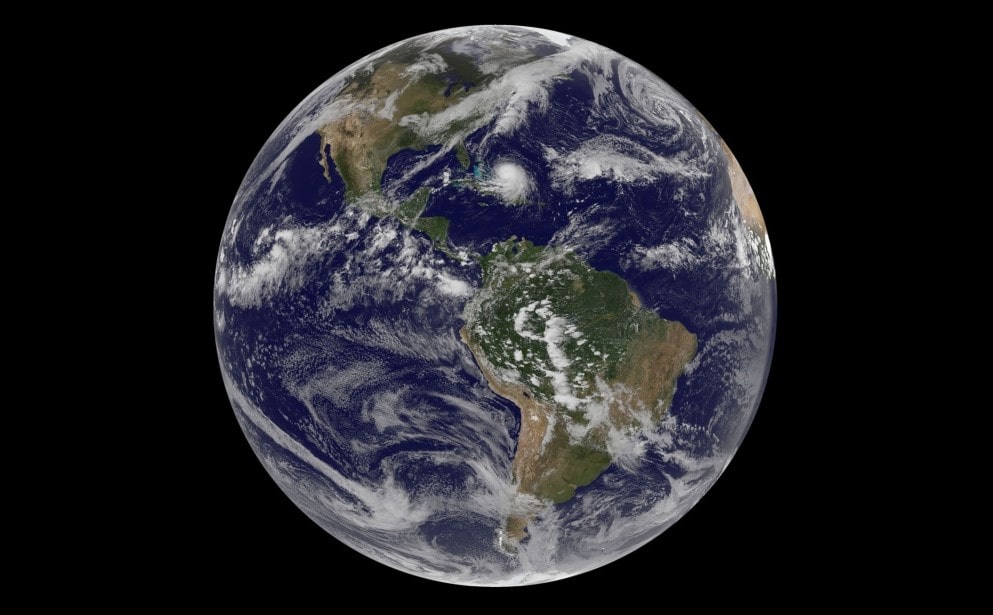Today, we are living in an uncertain time, referred to as “Climate Change”. Scientists say the problem is due to too much carbon dioxide in our atmosphere. However carbon dioxide is part of the natural cycle, expanding and contracting as the Earth ‘breathes’ seasonally, and not the demon that climate change theorists sometimes characterise it to be. The use of fossil fuel is one culprit, but according to modern soil scientists, they are switching the bulk of the blame to unsustainable agricultural practices.
Carbon dioxide monitors show that it is during spring months, peaking around May, when our atmosphere receives its highest levels of CO2. This coincides with the practice of tilling and stripping the land in the northern hemisphere. A time when vast sections of the planet are laid bare of vegetation. It is this practice of removing vegetation that is getting the blame for turning at least 20 cradles of civilizations from lush to sandy environments.
Scientists have now surmised that it was farm tilling and deforestation around the castles, that overtime, turned the thick (fertile) soil to sandy soil. One such loss was the Loess Plateau, China. Based on Feng Shui principles this hypothesis is sound.
Guo Pu in his book, “The Burial Book”, (Zangshu 葬書) written around 2000 years ago, explains the biggest benefit of thick soil is its ability to house Sheng Qi; a life force.
葬者,藏也,乘生气也。
夫阴阳之气,噫而为风,升而为云,降而为雨,行乎地中,谓之生气
To Bury is to Store and Ride on Sheng Qi.
Yin Yang Qi is emitted as wind, rises as clouds, descends as rain, then seeps back into the ground. This is the storage place of Sheng Qi.
Sheng Qi, is “growth, or life qi”. It is a force that rises from the soil as a vapour. If protected from scattering, it rises to the clouds and returns with regenerative rain. If this process is not met, the opposite of Sheng Qi is created, and that is Sha Qi. Sha Qi makes life more difficult and normally results in poverty and relocation for the people. To grow and to prosper, we need Sheng Qi.
It was not until the late 19th century that Scientists even considered soil as a living entity. That was nearly 2000 years after Guo’s text book on soil profiling was written. They knew for some time that just one handful of soil contains more living organisms than there are people on the planet. Instead, It took the transformation of nearly 20% of the Earth’s soil becoming fragmented and infertile before they took notice.
The information was out there. Other books from Guo Pu’s era also wrote in the same sentiment. They all agreed, to store healthy Sheng Qi the soil needs to be rich in vegetation. It is the process of plants losing their water vapour during photosynthesis that adds moisture to the air. The moisture in the air creates clouds which when saturated bring rain. More plants, more rain, richer soil; this is the premise.
Another writer Bu Yingtian, who wrote the classic “Of Pure Minds”, (Xue Xin Fu 雪心賦) during the Tang Dynasty, agrees the site needs to be well vegetated. He described it this way:
“明堂平曠,萬象森羅; 眾水歸朝,諸山聚會; 草盛木繁,水深土厚”
The Bright Hall needs to be flat and wide, and all things are dense [with vegetation]; the waters return to the Facing, the mountains gather; the grass is full of trees, the water is deep and the soil is thick.”
The good news is lost Sheng Qi, and lush vegetation can be restored. Soil regeneration is still possible even when the ground is baked hard or as loose as sand. The Loess Plateau is one success story of soil regeneration.
For thousands of years the plateau supported lush agriculture. Tilling and deforestation turned the lush area into dust. By the 2nd millennium the Loess Plateau was one of the most eroded and poverty stricken places on the planet with just 10% vegetated cover.
China called in the experts worldwide. After studying the situation and putting in many years of hard work, they have restored the Loess Plateau back to its natural lush landscape. This resulted in millions of people in the area being lifted out of poverty. Family members who left to find work to support their families could return.
Many such projects are going on worldwide. Too bad it took 2000 years for the soil scientists to see and accept soil as a living entity, when the information was readily available. Too bad they hadn’t studied Feng Shui.


